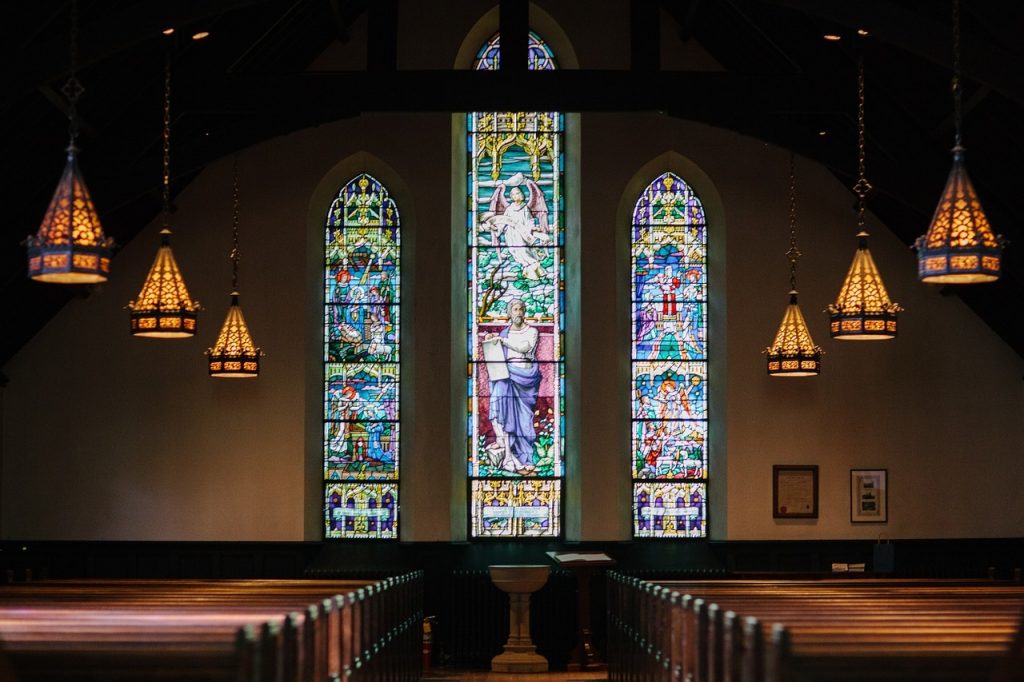
TRADITIONAL
Before saying “ugh” traditional is so dull, take a look at the people who share this prayer style. Daniel was nothing if not traditional. When in exile he continued all the Jewish traditions. His strong convictions didn’t allow him to do otherwise.
Think Daniel’s life was boring? As a slave, he rose to very high ranks in Babylon; advising two kings! Additionally, he saw visions from God, interpreted dreams, and even spent some time in a lion’s den. (Daniel 6: 13-23)
So go ahead and keep your traditional style; however, don’t allow it to keep you from trying new things or to grow spiritually. Let traditions bring joy and provide security, but don’t allow them to confine you.

EXALTER
Of course, David falls in this prayer style. One time his enthusiasm in worshipping made his wife Michal mad. She found his dancing before the LORD vulgar and common for royalty. Not a good look for Michal and David defended his expression of love for God. Michal’s criticism forever affected their marriage. (2 Samuel 6: 16-23)
Another “exalter” was Mary of the Mary, Martha, and Lazarus siblings. First, we see Mary exalting Jesus by sitting at his feet, absorbing His teachings. Despite her sister’s protests that she should help cook, Jesus defended Mary’s desire to learn and know Him better. (Luke 10: 38-42)
Later we find Mary at Jesus’ feet again. This time she poured oil on Jesus, for it seems she knew His death was near. Criticized by the disciples for wasting money, Jesus defended her actions a second time. After all, she was preparing Him for burial and exalting her Lord.
The “exalter prayer” style can’t go wrong; however, Christians must balance their exalting prayers with intercessory prayers for others.

PLANNER
Now before you say that is not a very exciting prayer style, consider the biblical characters in your league.
There is Esther, a beautiful orphan living in a foreign country until unusual circumstances made her Queen of Persia. Despite the risk, Esther risked her life to save her people from annihilation. However, before taking action, she fasted for three days and strategized for success. Esther 4: 15-17
Even Jesus told His disciples to plan before making the decision to follow Him:
“But don’t begin until you count the cost. For who would begin construction of a building without first calculating the cost to see if there is enough money to finish it” (Luke 14:28 NLT)
And Proverbs is all about planning:
“Do your planning and prepare your fields before building your house” (Proverbs 24:27 NLT).
In other words plan to do things in the proper order. If you build your house and miss the planting season; you may have shelter, but won’t have anything to eat!
“A prudent person foresees danger and takes precautions. The simpleton goes blindly on and suffers the consequences” (Proverbs 27:12).
Solomon warns us that not planning ahead can bring about disastrous consequences.
“Plans go wrong for lack of advice; many advisers bring success” (Proverbs 15:22 NLT).
When planning for an event, decision, or your future seek godly advice.
But keep in mind that while Solomon tells us planning is good, we must first trust and listen to God. Make sure our planning is done with prayer.
“Seek His will in all you do, and He will show you which path to take” (Proverbs 3:6 NLT).
So continue to plan your prayers for maximum effectiveness. Just don’t let your prayer style get in the way of any surprises God has in store.

ON THE SPOT STYLE
Don’t think this means you have no depth. Instead, recognize that you grasp the concept of “praying without ceasing.” (1Thessalonians 5:17) Your prayer style knows God is there all the time, and you talk to him throughout the day. So who are the biblical “on the spot” (often called arrow prayers) partners?
Nehemiah often used “arrow” prayers as he took on the massive project of rebuilding the walls of a vanquished Jerusalem. Despite mocking from the enemies, Nehemiah continued to pray his way through this God assigned project. (Nehemiah 4:4) There are eight recorded “on the spot” prayers by Nehemiah.
Another person who prayed “on the spot” was Abraham’s servant Eliezer. Abraham’s son, Isaac, needed a wife, but Abraham insisted it must be a woman from the homeland.
Thus, Abraham sent his servant on a mission to find Isaac a wife. Despite Eliezer’s concerns, he took his faith and many gifts and traveled to Abraham’s homeland. When he saw the women at the well, he lifted a quick prayer before approaching her; consequently, God answered that prayer with a woman named Rebekah. From this union, Jacob was born and fathered the twelve tribes of Israel.
So continue to pray “on the spot” prayers, but remember, like Nehemiah, it is also essential to spend extended time in prayer and devotions. (Nehemiah 1:4)

GREAT EXPECTATIONS
You expect God to come through; however, even when His answer isn’t exactly as you hoped, you accept it as best. Who are the biblical characters with this prayer style?
Ruth has a whole book in the Bible written about her escapades. She is opened-minded and willing to try something new. Change doesn’t scare her. Ruth is a cheerful person who sees life as an adventure; however, she still stands by her convictions. (Find her in the Book of Ruth – it is an exciting tale)
Then there is the Roman officer whose young servant was ill and paralyzed. He expects Jesus will perform a healing miracle; therefore, he tells Jesus to not come to the house, for he expects that Jesus can perform a miracle from anywhere. Jesus said he had not seen such faith in all of Israel. (Matthew 8: 5-10)
And don’t forget the woman who expected a miracle by merely touching Jesus’ robe. (Matthew 9: 20-22)
So if your prayer style is “Great Expectations,” continue to live life to the fullest with God. However, remember that sometimes we must keep our feet firmly planted too.

BARGAINERS
“On no,” you say, “so unflattering,” but take a closer look at some answered “bargainer” prayers.
Depression overwhelmed Hannah due to her childlessness, moreover made worse by the taunting of her husband’s other wife. Consequently, Hannah bargained with God for a son, whom she promised to dedicate to God’s service. (1 Samuel 1:9-11)
Gideon asked God for proof twice before believing it was God speaking. Although slow to convince, he followed through and gave Israel a great victory over the Midianites. (Judges 6:36-40)
Hezekiah was a faithful King of Judah; therefore, when he became ill, this king wept before the Lord reminding God of his faithfulness. Thus, God relented; given this leader fifteen more years. Despite God’s mercy, Hezekiah asked for proof of his healing by making the shadow of the sundial to ten steps backward. Does God lose patience? No! He complied! (2 Kings 20: 1-11)
Therefore, despite their bargaining, these three individuals are not bad company. Hannah and Gideon were humble people, and all three of these individuals had great faith.
The Bible tells us after Hannah prayed, her depression was gone. (1 Samuel 1:18) Gideon is in the Hall of Faith. (Hebrews 11:32) Furthermore, the Bible praises Hezekiah’s leadership because he did what was right in the sight of the Lord. (2 Kings 18: 1-7)
Therefore, talk to God honestly and ask Him for some reassurance. Just don’t make this your only, or even your primary, communication with your Creator.
